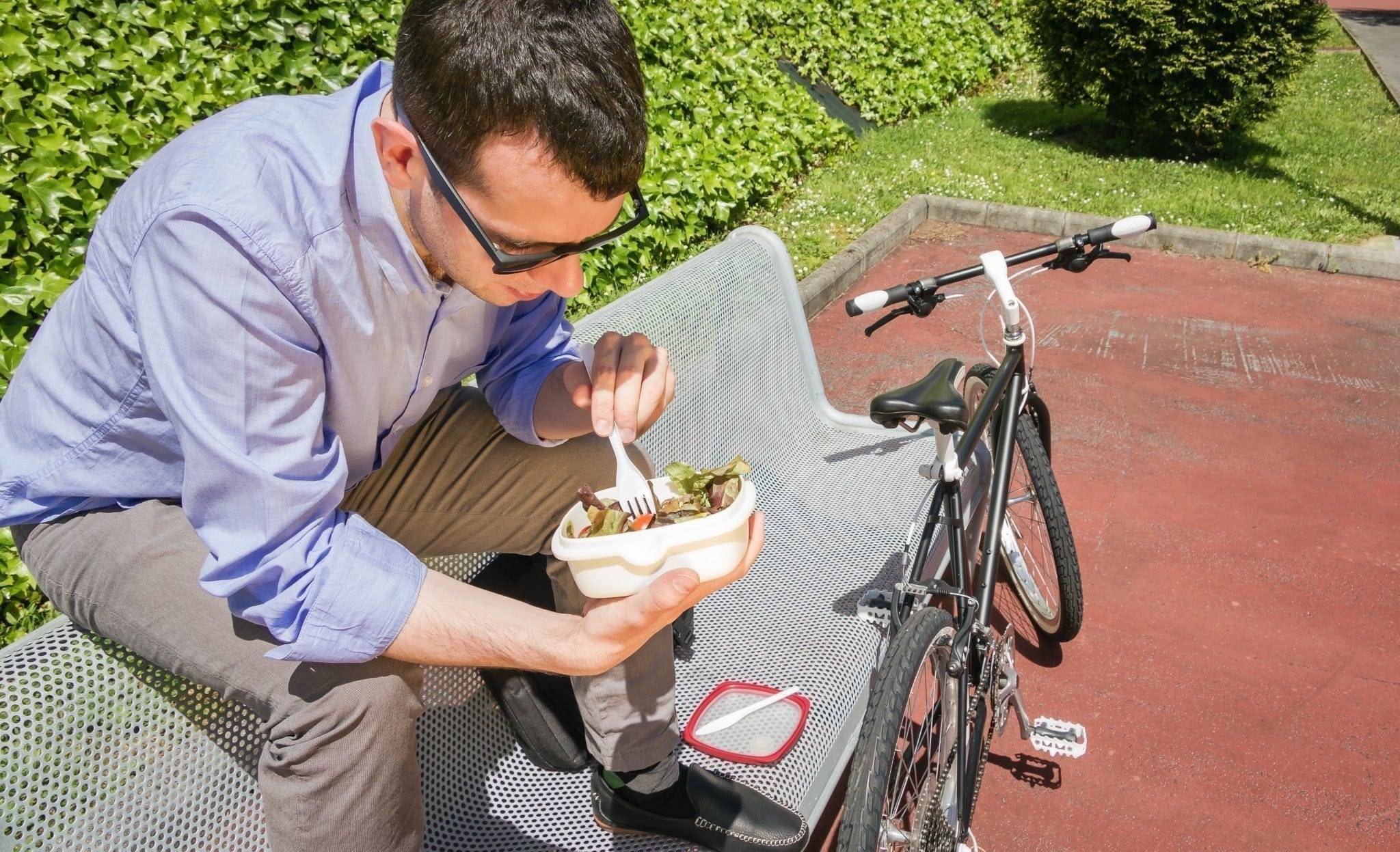In a previous article, I discussed why we turn to food for emotional reasons. If you really want to be free of this self-destructive habit for good, you need to increase awareness in your eating— this means tuning into your thoughts and feelings on a regular basis, and making needed adjustments to prevent you from reaching for the cookies whenever you’re having a rough moment.
When we fight with ourselves about digging into the cookie bag, the two parts of the mind at work are the emotional and the rational. The “emotional mind” drives us when we do things without thinking them through first; these actions are based on how we happen to be feeling at that particular moment: For example, “Feel sad—must eat cookies.” The “rational mind” is at work when we take the time to think things through before acting: For example, “I know I want to eat cookies right now, but it won’t solve my mood and I’ll feel bad about myself afterwards.”
The goal of eating with increased awareness (EWIA) is to have these two parts work together harmoniously. Ideally, we want to increase our awareness of what is going on for us emotionally, while at the same time, use our rational minds to solve the problem at hand. This is where EWIA can help us make good food choices that leave us feeling healthy, peaceful and in control. Of course, like any new skill, EWIA takes time and practice in order for us to be successful. Even though it may feel awkward and difficult at first, over time, it can become as second nature as brushing our teeth.
EWIA is not so much about being aware of what foods are on our plates but, rather, awareness of what and how much we’re eating and why we’re eating it. If you’ve ever practiced meditation, you’re familiar with how your mind tends to wander, and can appreciate the discipline required to keep bringing it back to the present moment. The same thing happens when we eat without conscious intention and awareness.
Here are two major, relatable roadblocks to EWIA. For each one, I will give you tools you can use to bring more awareness to food and the eating experience.
EWIA Roadblock #1: Distracted Eating
Who among us doesn’t multitask on a daily basis, especially while we are eating? In today’s fast-paced world, the preparation and consumption of food seems to be little more than an inconvenience in our stressed-out, busy lives.
Do you eat while also:
- Watching television?
- Working?
- Being totally stressed out?
To help you let go of distracted eating, try the following:
- Only eat while sitting, and focus solely on the act of eating your meal.
- Eat away from your work area: in a lunchroom, restaurant or outside.
- Take a few deep breaths before you eat to calm and center yourself.
EWIA Roadblock #2: Eating Without Enjoyment
A 2006 survey showed that Americans are eating more but enjoying it less. Just 39% of adults said they enjoyed eating “a great deal,” down from the 48% who said the same in a 1989 survey.
To help you eat with more enjoyment, try the following:
- Take a minute before each meal and ask yourself what food you’d really enjoy eating at that moment, and try having that particular food if you can get it.
- When eating something you really love and enjoy, eat it very slowly and enjoy the senses that go along with it like taste, texture, temperature, etc. Try to really be in the moment while enjoying the food.
- Choose a small portion of your favorite foods to experiment with and notice how satisfying less can be when you slow down the eating experience and really enjoy it.




